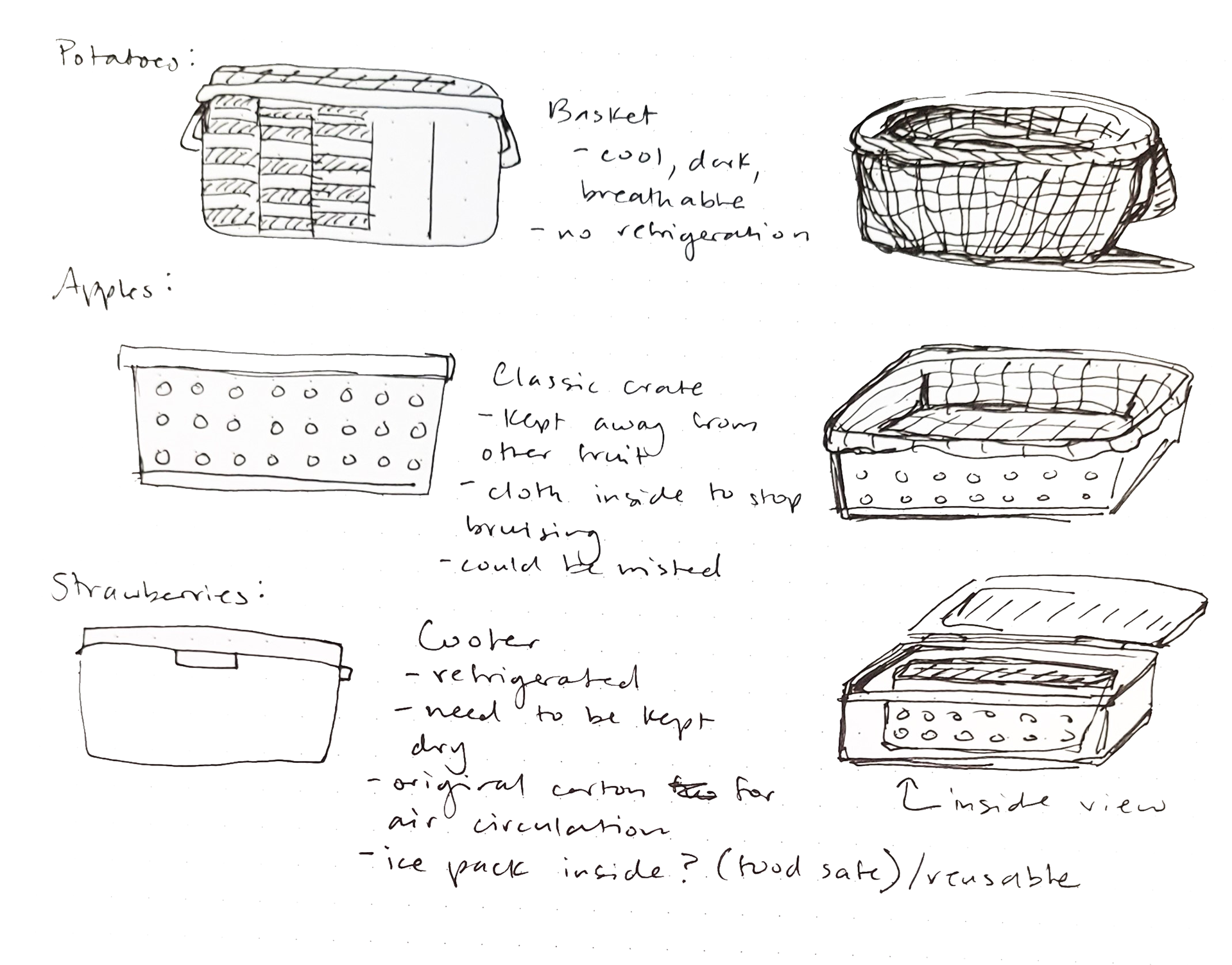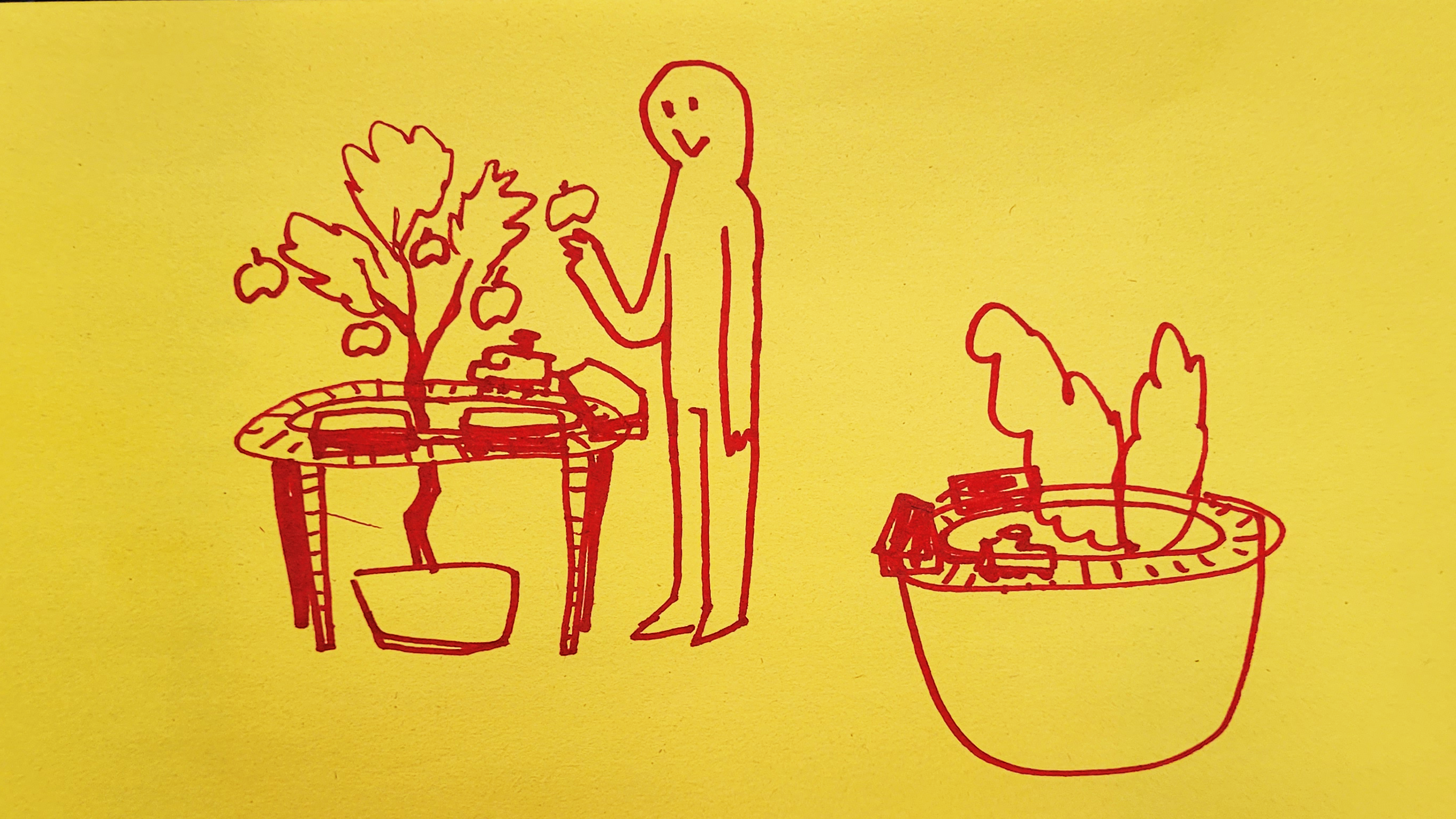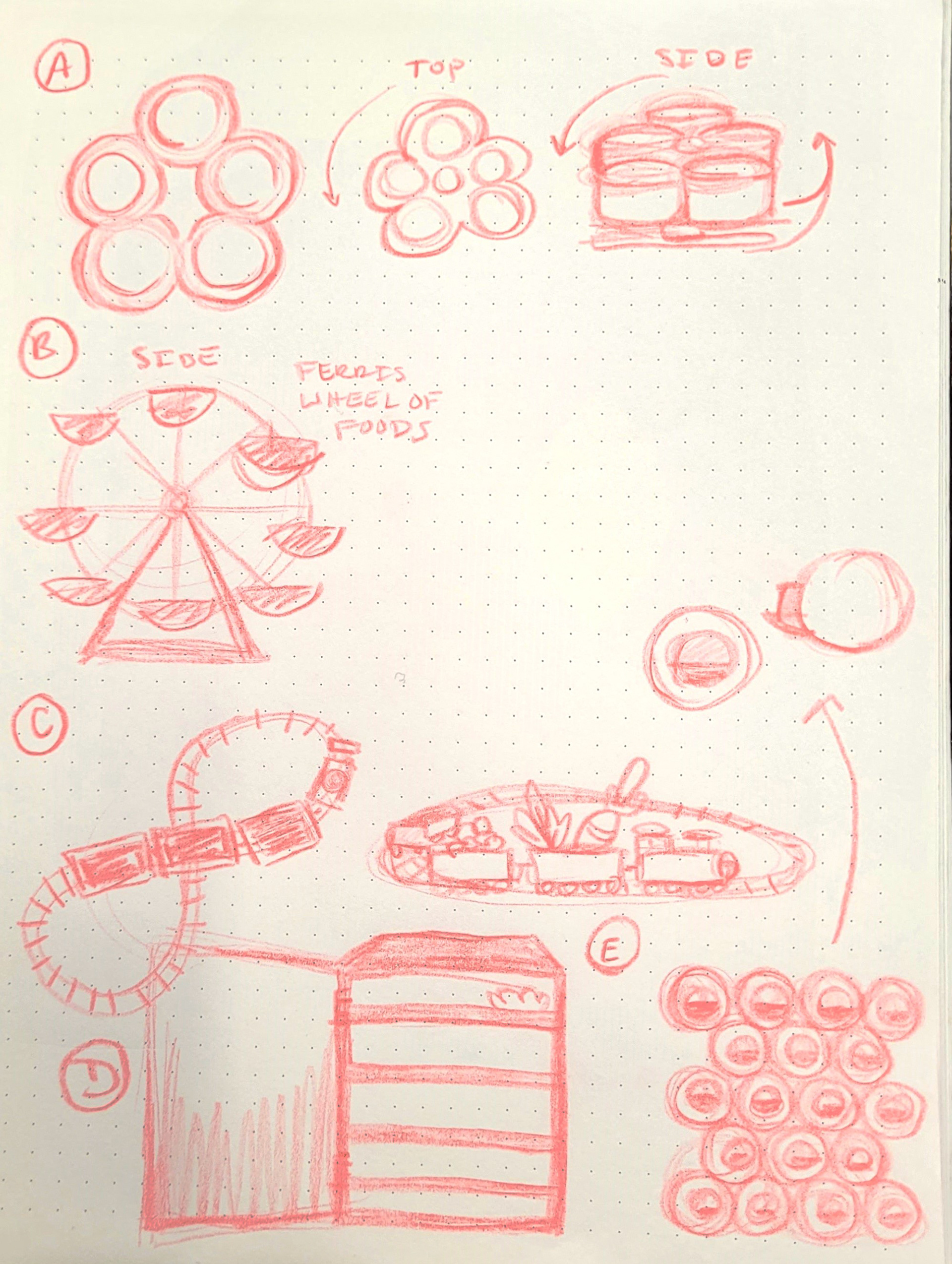Concept: A system designed to reduce food waste & build human connection in apartments, offices, & greater communities
Platform: Custom-built table, physical installation, Photon microcontroller
Engine: Particle IDE
Team: Aylish Turner, Vidit Bhargava, Yunting Zhao
Duration: Jan - May 2024.
Roles/Contribution
Systems Designer: core interaction loops, food & health safety
Product Designer: table & basket design, copywriting
Fabricator: Woodworking, laser cutting
Posters by Yunting Zhao
Design Process
The Share Wagon originally began as a tupperware prototype that would measure time and moisture inside of the container to determine rotting leftovers and remind users to eat the food before it goes bad.
This initial prototype faced many issues regarding the delicate gas and humidity sensors. Our team also became more interested in "big context" issues regarding food waste and wanted to move beyond individual impact to examine bigger communities, such as apartments.
Design Goals:
- Reduce food waste
- Enhance community connection
- Create an adaptable system other communities can use
We researched pre-existing food quality & health standards, as well as products that tracked food lifespan.
Research & Interviews
We interviewed a variety of home cooks across San Francisco, Berkeley, and Oakland to see how they utilized their kitchens. Interviewees allowed us access to their kitchens to observe how they cooked, cleaned, hosted guests, and performed other miscellaneous tasks in their kitchen, including food and utensil storage, decoration, and waste management.
We took notes, captured images, and recorded audio and video of each interviewee's home, then analyzed the interviewees for common repeated issues as well as unique edge cases. Common issues included the desire to reduce leftover spoilage while increasing shared meals with family and friends.
Early ideas - we combined 2 & 4 and then moved to the community sharing idea

Food storage considerations

An early concept where the food is stored on a moving train!

Form exploration
After a series of surveys, we prioritized preventing food waste of fresh produce typically purchased in large quantities, such as apples, berries, and potatoes, which often go bad quickly. I did some material research on best practices on washing and storing these respective produce and sketched out some different storage options, such as bins and baskets.
Tracking Food Quantity & Quality
Simultaneously, we considered the form of the Share Wagon. Although we considered many designs, we decided on a circular table to encourage a sense of belonging and to symbolize the food cycle. The food itself is stored in baskets fitted with scales that consistently measures the weight of the items in the basket - this measures the quantity of food left.
The scale is connected to a Particle Photon, which then updates the Share Wagon app with up-to-date quantities and items.
Food is replaced by residents and users of the Share Wagon system. In order to donate, users have a profile on the app. To ensure a level of food quality tracking, donations are not fully anonymous, as users must input what the food item is, suspected quality, and any ingredients/allergens. However, users who accept donations are anonymous. This helps users feel more at ease in both giving & receiving free food, as some users expressed anxiety or fear of social shaming when using other free food sources such as food banks.
Real-World Application
We ran a small prototype of the Share Wagon framework without the app in my apartment complex - by leaving a simple box with a few starting food in the common lobby area, more donations began appearing, including non-food items like books. The presence of a box seemed to suggest a sense of structure, giving users permission to give and take freely within the space. This ran for several weeks while designing and fabricating the larger table with the scale system and app.
Conclusion
Bigger Picture: Sustainable, community-oriented design must be specific and easily adapted for a respective community. There is no "one size fits all" framework. However, installing and monitoring the system as a member of an apartment complex rather than an outside entity allowed for deeper personal connections and observations throughout the design process.
Challenges & Future Work: Although we anticipated tracking food quantity to be one of the biggest challenges, it was fairly easy by tracking weight over time. However, food storage and retaining food quality remains an issue - although our baskets have been modified to have some cooling properties, they are not refrigerated full-time. Future iterations would include installing the full Share Wagon in a living community to test over several months.
